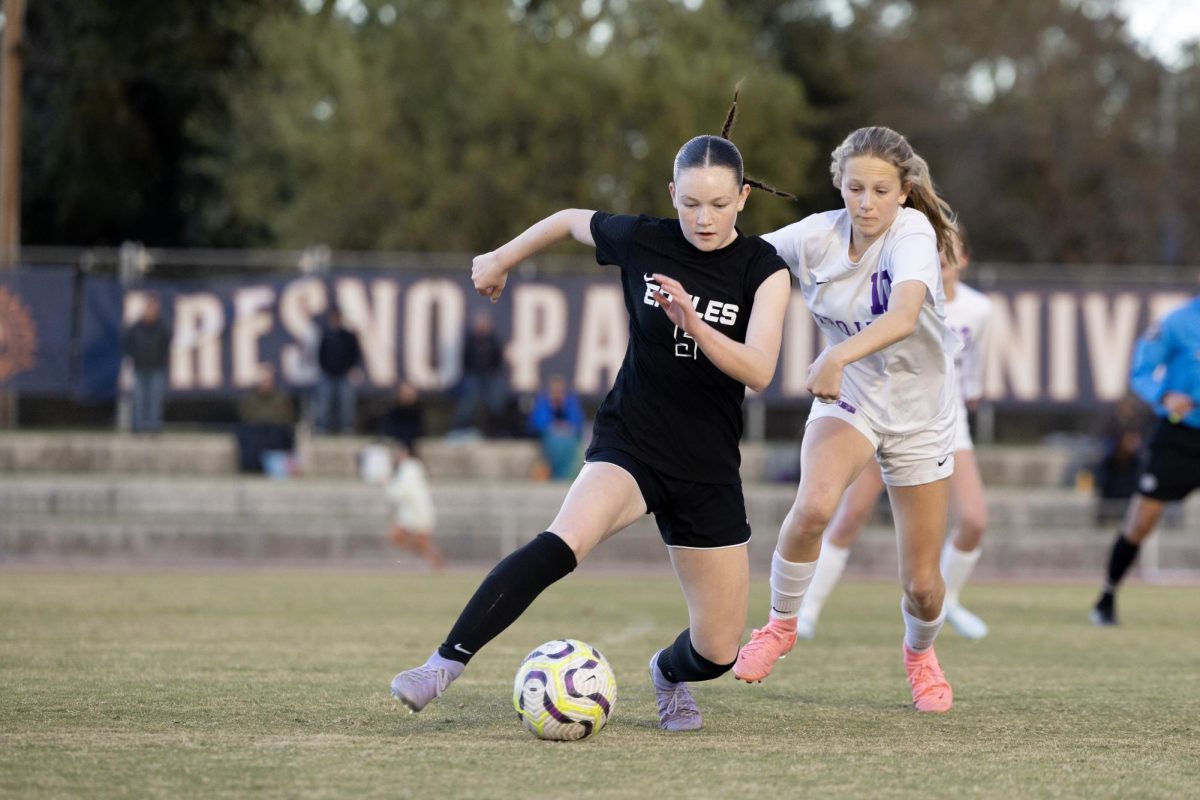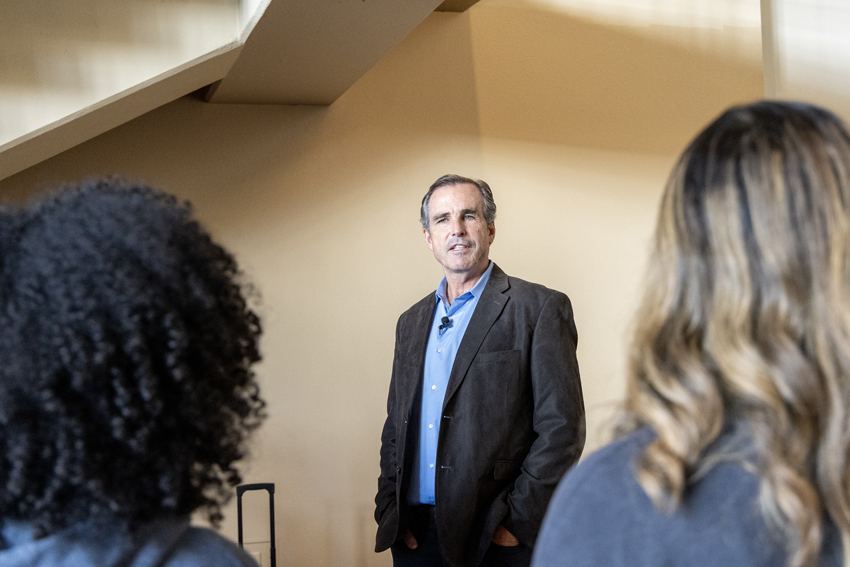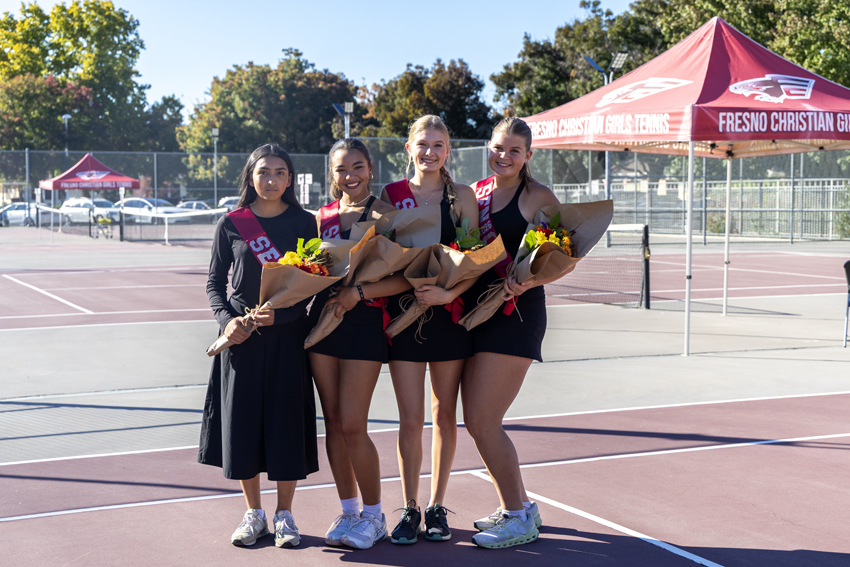Some people picture scuba diving as an extreme and frightening activity, while others find it exciting. For junior Ashley Erickson, it is a thrilling adventure that she never wants to pass up.
Erickson has been diving for four years and the joy she finds in the activity has not ceased. Being a skilled scuba diver, Erickson has never experienced a scary or frightening moment.
Ever since she first saw her dad and brother searching for abalones in the ocean, Erickson desired to do the same. Her family supported and encouraged her to help begin the process of becoming certified.
“I was encouraged to start by my dad and brother, who have been diving much longer than I have,” Erickson said. “My favorite memory was going out with them on my first dive. It was awesome being in the water with them.”
Erickson’s mother, Lynne, has never been scuba diving because of the strange environment. When considering her family’s hobby, she highly admires those who do not suffer from her fear.
“Breathing underwater is unnatural and scares me to death,” Lynne said. “But I am so proud that both of my kids have chosen to get certified do they can dive with their dad.”
As a junior in high school, Erickson finds it difficult with her schedule to get away due to time issues, such as school and the restrictive season for hunting abalones, a shell-like creature her family eats.
“There is not a specific time of year that my family and I go,” Erickson said. “It’s just hard to find an opening when all of us are free. When we do find an opening, we either go down to Lovers Point, a popular diving spot in Monterey, or up north along the California coast.”
Before a person can go scuba diving, there are certain courses that take weeks to be completed in order to become a certified diver. These courses consist of multiple classes, books and training in swimming pools.
“Becoming a certified diver is a lot of hard work,” Erickson said. “I had to attend a class, leading to a training dive in an olympic-size swimming pool. Then, two months later, I did my open water test dive, which was when I finally became a certified diver in Monterey, at 14 years old.”
To be qualified, the exact knowledge and information for diving is important to memorize for protection. With a late start in joining the classes, Erickson crammed to finish the courses in under two weeks.
“The book I had to read explained in detail the regulation for diving,” Erickson said. “It clarified which equipment to use and how it works, the different types of air, how to deal with residual nitrogen and the hand signals when diving under water.”
Junior classmate and friend Amy Savage believes that scuba diving has contributed to the characteristics that Erickson has established over the years.
“When diving, you need to be able to work as a team and she has been able to insert that into her life,” said Savage. “Self-control and patience define who Ashley is as a person.”
Other than hunting for abalone shells, her family, not having a goal for the dive, enjoys going free-diving in water between 15-30 feet deep. Preparation before the dive must be completed before going out in the ocean.
“Before diving, you have to check the tides to make sure that its a low tide,” Erickson said. “One time I had to wake up at 4 a.m. to catch an opening in the tide before it changed into a high tide. Once you have an opening, the abalone dive itself must be made without a oxygen tank because it is illegal to carry one while diving. The limiting factor comes down to how long you can hold your breath without a tank and how deep the area is.”
In order to be properly prepared for a scuba dive, there are several essential things to a safe dive. If you are unprepared, it is possible to inflict harm yourself or other divers.
“For a full on scuba dive you need to have the right equipment like a wetsuit, a weight belt, tank (only for a regular dive), a Buoyancy Compensators (BC), fins, a regulator, a dive computer, dive knife, along with a snorkel and mask,” Erickson said. “When we search for abalones, we also carry AB irons to pry the shells off the rocks.”
Erickson’s dad, John, influenced Erickson to start diving and often accompanies her on the dives. Unlike Erickson, John was encouraged to start by his teammates who raced outrigger canoes, a type of canoe with one or several lateral support floats known as outrigger.
“I was in Hawaii for one of our races, when my friends suggested to go scuba diving,” John said. “I still dive with some of the same guys today. The thing I enjoy most about scuba diving is that it takes me to a different world, where there is no noise, just the sound of my breathing.”
For Erickson and her family, scuba diving has become a known activity. Her uncles, friends and cousins usually join in on the experience.
“When we are not searching for abalones, we enjoy the moment by going out and having a great time free diving,” Erickson said. “I have learned from their experience and it has helped me improve my skill in diving.”
For more student profiles, read the March 23 article, Leadership roles create path for eighth grader.







Lexi Fenster • Mar 22, 2012 at 12:04 am
OMG, Rhyann, I love your face!